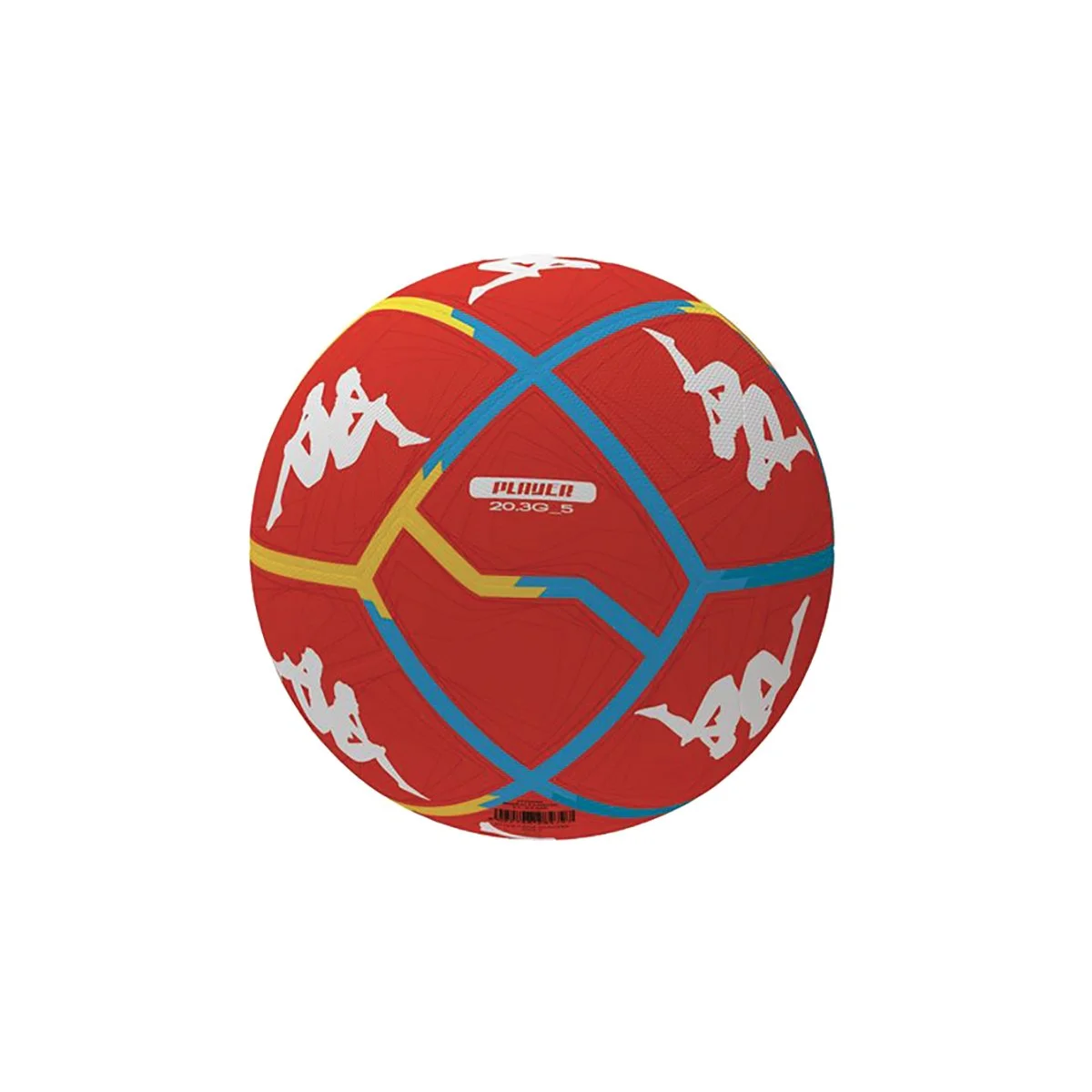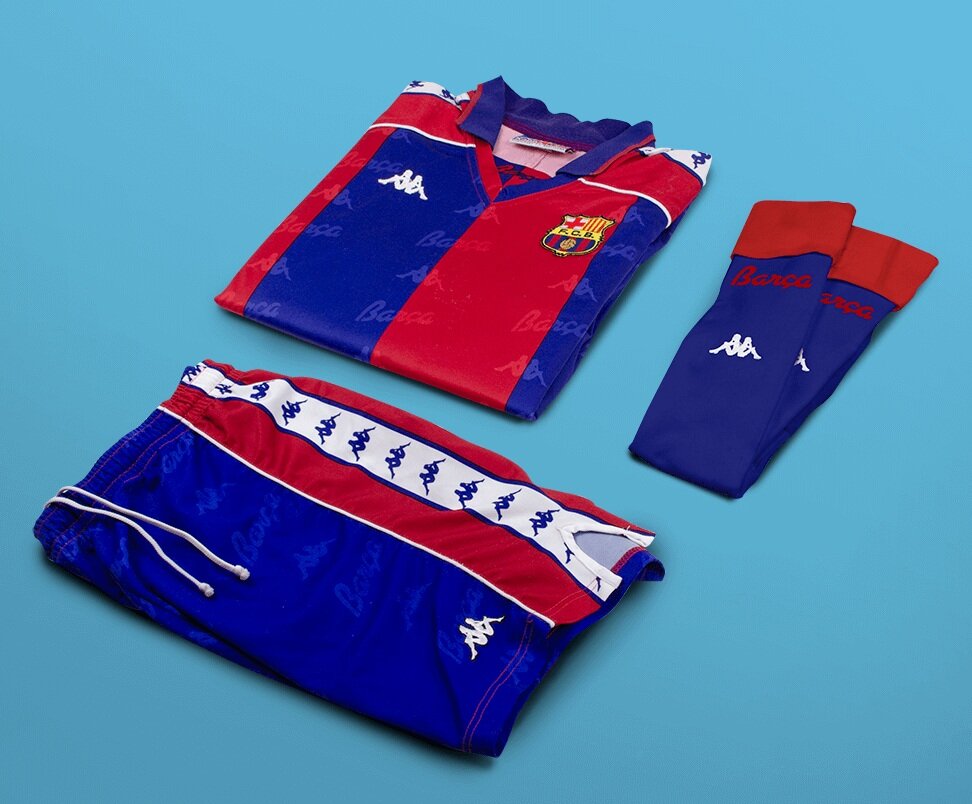The Story of Kappa in Football
The story of sportswear brand Kappa and its involvement in Football
Aanu Omorodion brings us the story of the Kappa brand and its involvement in Football/Calcio. From the early days in Turin to the iconic brand it would become.
Kappa x Football - A couple with a tempestuous yet magnetic relationship
Kappa: The beginnings of a global brand
Kappa is an Italian sportswear brand established in Turin, Italy. It is the sportswear subsection of Italian apparel brand ‘Robe di Kappa’. The brand evolved from a sock and underwear company called Maglificio Calzificio Torinese (MCT), which was established by Abramo Vitale in 1916.
Then, products were simply stamped with a ‘K’. This signified Kontroll, the German word for control. Sales surged in 1967, which then prompted the change in the brand name to ‘Kappa’, the Greek letter for K.
Robe di Kappa itself was originally created in 1968 by Maurizio Vitale, grandson of Abramo. Vitale’s family was one with generations of experience in the textile industry, and he was inspired by John Lennon’s fashion when creating Robe di Kappa.
“Kappa’s famous ‘Omini’ logo is a silhouette of man and woman leaning against each other, and represents the equality of both genders.”"
The logo was created in 1969 by accident during a bathing suit photoshoot where the silhouette was noticed.
The sportswear subsection of the Kappa brand was created by the then-sales and marketing manager of the brand, Marco Boglione in 1978.
Boglione had recognized the demand for sportswear in the apparel market and got approval from Maurizio Vitale to create the subsection. He would later buy the assets of his former employer in 1994, saving the brand from bankruptcy.
Since its inception, Kappa has supplied individuals and teams in sports such as football, athletics, basketball, fencing, rugby and many others.
Kappa’s initial Involvement in Football
With guidance from Boglione, Kappa began supplying the jersey of hometown club Juventus in 1979. Juventus ‘ status as one of the premier clubs in Italy meant the quasi-sponsorship added desirability to Kappa.
Multiple Italian league titles and European success for the Bianconeri with Kappa as a kit supplier also meant incessant exposure to fans of the biggest sport in the World.
While Kappa’s involvement in football helped the brand grow, expanding its supply in the Italian league would prove difficult for a few years.
Sportswear manufacturer Ennerre was the foremost brand in terms of supplying jerseys in Italy at the time, manufacturing for teams such Roma, Napoli, Fiorentina, Atalanta, Bologna and Sampdoria.
Inter were supplied by Puma from the late ‘70s coming into the ‘80s. Milan were supplied by Linea Milan in 1981, then Nicola Raccuglia in the mid-1980s.
Take a look at all of our Football content!
Kappa expands outside of Italy
The Italian brand instead expanded continentally by commencing a kit supply deal with Ajax Amsterdam in 1984, replacing French sports brand Le Coq Sportif.
This led to increased awareness of the brand internationally. The United States Olympic track team agreeing to wear Kappa to the 1984 Olympic games in Los Angeles was a historic moment for the sportswear brand and brought global recognition as the athletic team swept the opposition with 40 gold medals.
Kappa also continued to supply Juventus and Ajax into the 1980s, as superstars such as Michel Platini and Frank Rijkaard wore jerseys branded with the Omini logo on a weekly basis as they dominated their respective leagues.
Kappa continued its partnership with the US Olympic team, manufacturing kits and footwear for athletes participating in the 1988 Seoul Olympic games.
The end of the 1980s brought with it a decline in Ennerre’s dominant position. Milan joined Kappa’s stable of European giants in 1986, alongside Juventus and Ajax.
Kappa also supplied kits to Sampdoria from 1988-1990, the famous Kappa logo adorning La Samp as the club won a Coppa Italia and European Cup Winners’ Cup in this period.
All the goals scored by UC Sampdoria, runner-up of the 1988/89 UEFA Cup Winners' Cup. .
Bankruptcy and subsequent ownership
Having adorned Ajax kits during league, cup and European success; Kappa had supplied simple and elegant yet memorable jerseys to the Amsterdam club, in traditional Ajax colours.
Umbro replaced Kappa as Ajax’s kit supplier in 1989. AC Milan then switched suppliers to Adidas the subsequent year, after collaborating with Kappa as they won back-to-back UEFA Champions League titles, as well as an Italian league.
MCT, the parent company of Kappa, had begun experiencing financial problems soon after Maurizio Vitale passed in 1987.
Plagued by financial mismanagement, MCT was declared bankrupt by the court of Turin in 1994. Marco Boglione had left the organization in 1985 to set up a successful mail-order business and returned to save the iconic brand, purchasing the assets including Kappa and Robe di Kappa.
The bankruptcy came at an especially bad time for Kappa. Having signed a three-year supply deal with FC Barcelona in 1992, the liquidation of MCT had come in the middle of the agreement.
The conundrum led to litigation in Italian court, which then allowed Spanish company Lamasport SL (changed to Sport Kappa SL soon after) to service the rest of the contract. Lamasport SL bought the rights to Kappa for the Spanish nation.
FC Barcelona x Kappa = A classic kit as worn by Ronaldo and Guardiola
The resolution of the bankruptcy fiasco led to the renewal of the deal with FC Barcelona till 1998. During the collaboration, Kappa popularized their Banda or logo tape across the shoulders of the Blaugrana kit.
Iconic moments of Kappa x Barca include The Dream Team of 1992 wearing Kappa the season after their European Cup win, back-to-back La Liga triumphs and O Fenômeno Ronaldo Nazario de Lima becoming the world’s best player at 20 years old in 1996 whilst wearing Kappa kits every week.
Kappa continued to expand its global reach, supplying kits to teams such as Real Betis and Manchester City during the late ‘90s.
Kappa in the 21st Century
Kappa had meanwhile continued supplying kits to their hometown club, Juventus, for 21 years, ending in the year 2000.
The Old Lady and the brand had become interlaced, with 7 Italian league titles, 4 cups and a European cup won during their strategic alliance. Players such as Platini, Baggio and Del Piero had become associated with The Omini.
Kappa - Kit Supplier for the Italian National Team
A dream of Maurizio Vitale was to supply the Italian national team with kits, and while he sadly passed before it became reality, Robe di Kappa never forgot the founder’s dream. BasicNet, Kappa’s parent company, won the auction for the 4-year contract to sponsor and supply the Italian national team in 1999.
The kits Kappa made for Euro 2000 were widely lauded as beautiful, stylish and innovative.
The royal blue and white home kit and all-white away kit were sleek, and form-fitting and changed the trajectory of football kit design for the new century. Italy reaching the final and finishing with a silver medal also served to bring further attention to the now-historic brand.
See the full drama of the semi-final penalty shoot-out between Italy and France as Francesco Toldo proved to be the hero for the Italians.
The partnership between the FIGC, Italian football’s governing body, and Kappa carried on to the 2002 World cup.
A similar, elegant design was picked as the sportswear brand showed continuity in their winning formula. On the pitch, Italy was eliminated by South Korea in the round of 16 in a match filled with very suspicious refereeing decisions. While the match was ugly, no spectator could speak of the Italian kits in a similar tone.
In the new century, sportswear giants such as Nike; Adidas and Puma have gained larger market share, dominating the supply of jerseys to the largest and most successful football clubs.
Kappa: Where are they now?
Kappa has become a bit of a niche brand in the sport now, though the Italians have still managed to find a market for their product in Europe’s top five leagues. Kappa has supplied Aston Villa since their return to the Premier League in 2019/20.
It remains a popular brand in Italian football, providing the kits for SSC Napoli from 2004-2006 and from 2015 till the present, and is also the supplier for Fiorentina, Genoa, Benevento, Empoli and others.
The brand retained its previous links with Real Betis, and is their current sponsor and supplier. Kappa has a presence in France as well, which rivals its Italian market.
It supplies kits to AS Monaco, the last club to win Ligue 1 not named PSG, as well as other Ligue 1 counterparts Angers SCO, FC Lorient and FC Metz.
The Omini continues to rest proudly on the chests of these clubs’ kits as a symbol of style and quality, representing one of the few brands in fashion to use human figures as its emblem.






